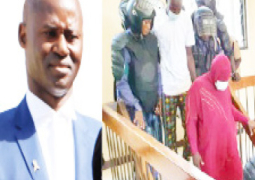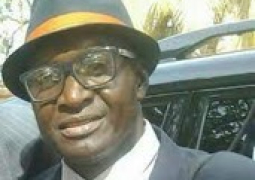
Saihou Sabbally, former a paying-out cashier, is said to have withdrawn more than a hundred and sixty-seven million dalasis, half or three quarter of which he could not account for. Sabally also told the Commission that he was not given a cashbook by the Council. He worked under the duo.
Mr Njie, who served as director of finance from 2018 to 2020 and under whom Sabbally served, testified: “Mr Sabally’s responsibilities were mainly disbursing cheques, paying suppliers and other beneficiaries that are entitled to any payment. However, all the transactions of his payment are captured in the Council’s main financial system’s central cashbook, which is the main cashbook for the council where all transactions are recorded before being forwarded to Sabbally for onward transmission to pay to other suppliers.
"But he is not a receiving cashier who receives money and handles money physically. He only handles transaction that are only going out to suppliers. Basically, all the transactions he handled are accounted for in the Council’s main automated system where the vouchers are all recorded in sequence. So that is what the auditors use when they come to inspect; the vouchers at the central cashbook and do their vetting and ensure all vouchers are kept intact. But it doesn’t mean Sabbally should receive monies and pay monies like that. That is how he performs his functions as a paying-out cashier."
The Lead Counsel Patrick Gomez asked if he meant that during the time he was acting director of finance, the records are there for the cheques that were issued to Sabbally, which he affirmed. “Now are you saying there was no need for him to have a cashbook?"
“Those cheques," he said, "are mainly salaries and wages, which are withdrawn monthly. Once these monies are withdrawn, he had to pay them immediately within a week, and attestations by the signatories of the recipients of those monies are attached on the vouchers to confirm that those monies are retired. Staffs not having bank accounts are paid over the counter. Those monies are paid to Sabbally which he pays to those people directly.”
He said everybody who receives must sign. He explained that the HR department gave them the list of all the payees and also forwards it to the CEO for approval. He stated that they couldn’t pay three to four hundred staff members individually; therefore they paid to the paying-out cashier, who ensures everyone receives his money.
The lead counsel asked if all the withdrawals from various banks could be accounted for, and Mr Njie responded in the positive. However, it was brought to his notice that not all vouchers were traceable, as Sabbally himself was not able to trace all the vouchers when he appeared before the Commission.
Asked if he could provide the cashbook for the period he was acting director of finance and for payments related to Mr Saihou Sabally, he affirmed he could do so. Both the CEO and the finance director were collectively tasked to provide the necessary documents.





